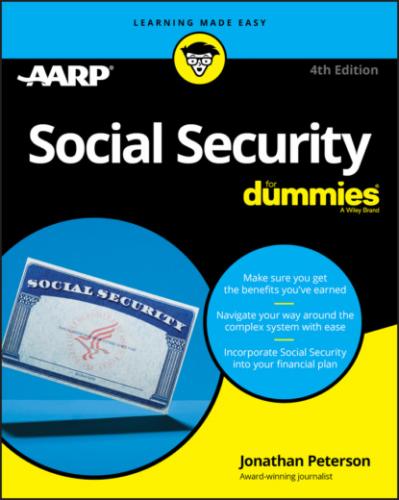* Based on a $1,000 primary insurance amount
Recognizing the Potential Payoff of Working Later in Life
Suppose you’re approaching 62, so you’re still years away from full retirement age. You’re still on the job, and you like it that way. Maybe your employer’s health plan is cheaper than any healthcare coverage you could get on your own, because you’re still too young for Medicare. Maybe you’re making good money. If so, you may be increasing your future Social Security benefit, if your current earnings are higher than some of the earlier years on your record.
At 62, you could face a decision on whether to work and start to collect retirement benefits. You already know that Social Security pays less each month for early retirement. But there’s another consideration: You’re likely to smack right into the earnings limit.
The earnings limit is a potential issue for individuals who claim retirement benefits before their full retirement age (see Chapter 13 for a more complete discussion). What it means is that if you begin Social Security while still earning money and you haven’t reached full retirement age, the SSA will withhold part, or even all, of your benefit if you earn above a certain amount per year. At full retirement age, though, you can say goodbye to the earnings limit. The SSA will raise your payment to give back the money it withheld.
For early retirees, the SSA holds back $1 for every $2 earned above a certain amount ($18,240 in 2020). The limit changes for the year in which you reach full retirement age. For individuals in this category, the SSA withholds $1 for every $3 earned above a certain limit ($48,600 in 2020). The withholding stops during the month that you reach full retirement age. The earnings limit rises each year to keep up with rising wages.
Putting It All Together: The Right Time to Begin Collecting Benefits
Make sure that you know when you qualify for full benefits, but remember you have broad discretion about when to claim. Refer to Table 3-1.
Know your benefit. By using the Social Security retirement calculators (see “Estimating how much you’ll get each month based on when you retire,” earlier in this chapter), you can quickly get an idea of the benefit you’d receive before, at, and after your full retirement age. Each year you wait to collect beyond your full retirement age will add 8 percent to your benefit. Each year you begin collecting before your full retirement age will reduce it between 5 percent and 7 percent. In other words, the earlier you retire, the less Social Security you get each month. For many people, that’s a powerful argument to hold off claiming benefits.
Be realistic about your life expectancy. If you don’t like to think about how long you’ll live, get over it. Your life expectancy, and the possibility that you may exceed it, should be factors when you make plans for Social Security and retirement in general. Of course, no one knows how long you’ll live. But there’s plenty to consider:Do people in your family tend to live long?How would you grade your own lifestyle in terms of fitness, exercise, diet, and other personal habits that affect health?How healthy are you? Do you suffer from a chronic condition that is likely to shorten your life?Do you have a lot of stress? If so, do you have ways of managing that stress that make you feel better?Do you lug around a lot of anger and worry? If so, can you do anything about it?
Think about all your sources of income and your expenses. Consider your
